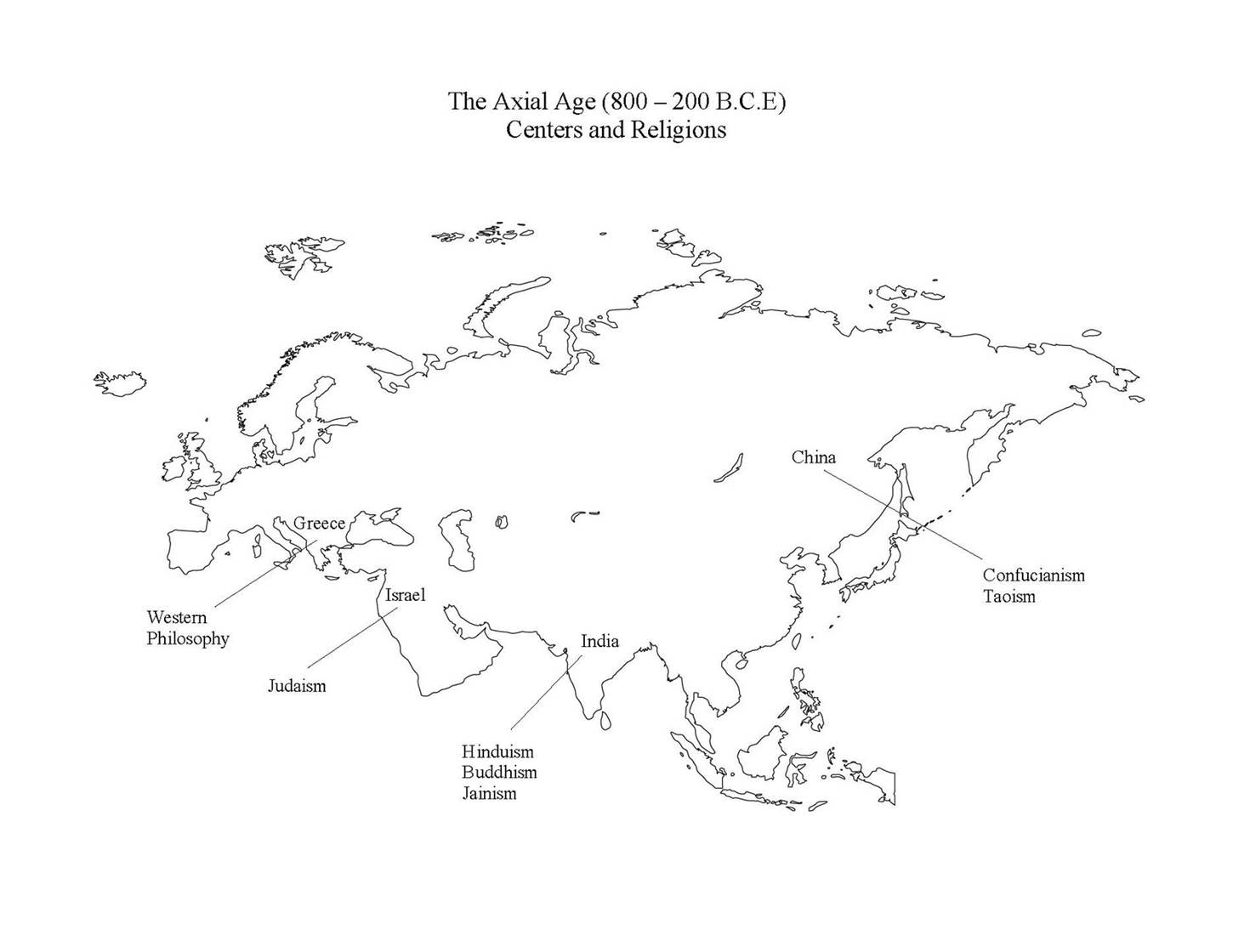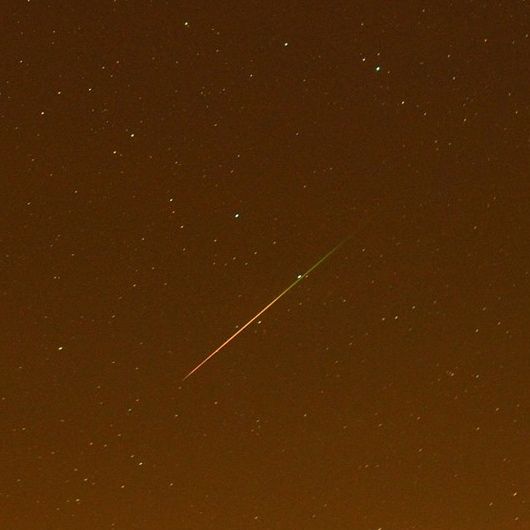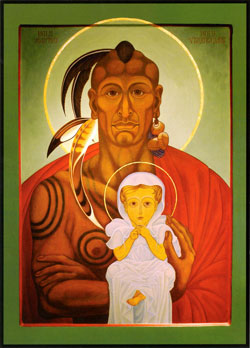A Sermon for XV
Pentecost (Proper 17) All
Saints’ Church, Southern Shores, NC September 1, 2013 Thomas E.
Wilson, Rector
I just got back
from the five day Dream Group Leader Training, the first training intensive
session that will stretch out over the next two years. The training for Pat and
I is being paid for by the money that was set aside for my Sabbatical which I
should have taken four years ago. I want you to get your money’s worth, so you
know I am going to see a dream in the lessons for today. Surprise, surprise; I
find it in the first lesson from today’s lectionary.
Jeremiah had a
dream, a vision, where God speaks to him and he shares an overview of that
dream. Everything is falling apart for the Southern Kingdom - the rich have
corrupted the whole society, justice is a joke, the poor are oppressed, and the
country, rotten to the core, is an easy target for an aggressive adversary. And that adversary appears - the Babylonians.
The destruction is in two parts; first is the military victory over the
demoralized army (you cannot expect your army to defend you if you exploit most
of the soldiers and their families), then the Babylonians set up a puppet
government and continue to crush the people. The occupiers have looted the
Temple, and when the puppet government tries to revolt, the Babylonians totally
destroy the temple and tear down the walls of Jerusalem as they take the people
into exile. The people enter into deep darkness and in their well of depression
ask, “Where is our God?”
Jeremiah has a
dream, a vision, and in the dream he returns to the shared sacred memory of his
people, the Exodus experience seven hundred years before. In the Exodus, the
Hebrew children went through the wilderness, finding that the Divine was living
in their daily lives, so much so that they considered themselves God’s people. God’s spirit was in every breath they took as
they walked in the wilderness toward a promise of being totally united with the
Divine. But as they came to the Promised Land, they put the Divine to one side
and said that they “could take it from here”. They made God a religion that
they could put into use in certain “Holy” times and places, and they got around
to doing the business of putting themselves in the center of the universe and
the Divine at the periphery. The memory of who they were in relation to God was
repressed. They kept the outward
trappings but ignored the heart. As Jeremiah remembers, the people and the
leaders all stopped asking, “Where is God?”, because they had made God so small
and irrelevant that they no longer really felt God’s presence. Jeremiah hears
God say:
But my people have changed their
glory for something that does not profit. Be appalled, O heavens, at this, be shocked,
be utterly desolate, says the LORD, for my people have committed two evils:
they have forsaken me, the fountain of living water, and dug out cisterns for
themselves, cracked cisterns that can hold no water.
Jeremiah’s dream
is God asking God’s people to remember who they are - they are people who have
a relationship with God that is readily apparent if they would only open their
imaginations and hearts.
The darkness of
the people of God in Jeremiah’s day is similar to our darkness in our day. We have
squandered our relationship with God and relegated the Divine to buildings and
schedules. Yet, we can begin to rebuild if we, like Jeremiah, can return to our
imaginations, our memories, and our dreams. Since we are already in darkness,
the way we find light is to really enter the darkness. There is a poem we
looked at during the Dream Leaders Training- I told you I would bring it back
up. The poet is David Whyte an English Poet who lives in Washington State. The poem is called Sweet Darkness and it comes from one of his collections called House of Belonging
When your eyes are tired
the world
is tired also.
When your vision has gone
no part
of the world can find you.
Time to go into the dark
where the
night has eyes
to
recognize its own.
There you can be sure
you are
not beyond love.
The dark will be your womb
tonight.
The night will give you a
horizon
further
than you can see.
You must learn one thing:
the world
was made to be free in.
Give up all the other
worlds
except
the one to which you belong.
Sometimes it takes
darkness and the sweet
confinement
of your aloneness to learn
anything
or anyone
that does
not bring you alive
is too small for you.
When our eyes are tired from busily
looking at the world through the narrow center of our personal universe, we
need to close them to dream and see vision in order to hear the Ground of our
Being.
One of the exercises presented by one of our instructors, Jerry Wright,
a former Baptist Pastor and now a Jungian Analyst, was to imagine the past 14 billion
years as a 12 month cycle where each month was 1.25 Billion years. Why 14
Billion? We think that is when the Big
Bang happened, (let’s say in January) that explosion of energy out of which the
creation we know began. In that energy explosion, our scripture tells us that
God spoke and let creation be in that first hour. Our science tells us that all
the atoms in our cellular makeup, in every piece of matter, carry the
fingerprint of that expression of power. Our faith tells us that all matter
coming from God contains the Spirit of God within it, as we proclaim when we
say: “All things come from Thee, O Lord, and of thine own have we given thee.” The scientist Carl Sagan echoes “We are made
of star stuff.” The Paleontologist/ Priest/Mystic Pierre
Teilhard de Chardin said: "We
are not human beings having a spiritual experience. We are spiritual beings
having a human experience." We, the world, the universe, are spirit-filled. The problem is
that we tend to make a distinction between this “real” (in quotes) world and
the spiritual world, between soul and body, between heaven and earth, when they
are really distinctions without differences.
Using the monthly calendar metaphor,
February is when the “allurement” of gravity causes galaxies to form. In the
month of September, our Galaxy, the Milky Way, one of a hundred million
galaxies, is formed. In the metaphorical month of December, where each day is
40 million years, on December 31st, at 11:53 PM, the beginnings of human
reflective consciousness bring us to see ourselves not as controlled by our
instincts but as part of something deeper as we have the development of Homo
Sapiens (Sapiens meaning wisdom), about 250,000 years ago. 40,000 years ago
these homo sapiens in the Ice Age reflect on the nature and meaning of their
existence in drawings on the cave walls, not of the food they eat which was
reindeer, whose bones are found in the cave, but of realistically painted buffalo
and horses which they did not eat but held in some regard outside the daily
struggle. At 11:59:53 we have the beginnings of religion with rituals and
codified approaches to the numinous.
At 11:59:55 we have Jeremiah in the 6th
century BCE - in the middle of that time that historian Will Durant called “The Shower of Stars” and Philosopher Karl
Jaspers called the “Axial Age” - with Amos, Hosea, Isaiah, Micah in Israel,
Heraclites in Ephesus, the Buddha and the Upanishads in India, the Tao in
China, Plato and Aristotle in Greece, when
we moved away from local Gods and tribal spirits to universal energies, which
we differed in name, but were approached in awe and humility.
Guttenberg’s Printing Press comes to
us at 11:59:59 so all of us could read the scripture for ourselves, and we are
reminded how many dreams God uses to speak to us. However, reading takes us to
the left side of the brain where our rational mind takes over and, as a result,
we got used to preforming the great heresy of seeing God in the third person as
he, him, it, as if God was not present but somewhere else to be studied and
picked apart rather than the 2nd person subject of you and thou with
whom to form a relationship. With only of a quarter of a second of metaphorical
time to go until today, Freud and Jung, a hundred years ago, start studying the
unconscious. Jung posited that we are all connected to each other from the
beginning of time until today in what he called the “Collective Unconscious.” He said: “The Collective Unconscious” contains
the whole spiritual heritage of (hu)mankind’s evolution, born anew in the brain
structure of every individual.” We believe that the divine is calling us out of
that collective unconscious and speaks to us in symbols and archetypes. As Jung
wrote: “In each of us there is another whom we do know (who) speaks to us in
dreams, and tells us how differently it sees us from the way we see ourselves.”
Dr. King in his “I have a Dream”
speech fifty years ago last week said:
We are tied together in
the single garment of destiny, caught in an inescapable network of mutuality.
And whatever affects one directly affects all indirectly. For some strange
reason I can never be what I ought to be until you are what you ought to be.
And you can never be what you ought to be until I am what I ought to be. This
is the way God’s universe is made; this is the way it is structured.”
The writer of the Hebrews lesson for
today speaks of entertaining angels without knowing it. Angels are messengers
from that which we call God, and we think they are “out there” some place, but
I would suggest that we entertain angels every day when we change our vision to
see ourselves “tied together in the single garment of our destiny” in the
sacred space between and in us, and every night when we dream and make a plan to
welcome God’s messages from the depths of our Psyche where spirit and matter
are one, and to honor and remember our nightly guests. As the Psalmist for
today sings: Oh, that my people would listen to me! * that Israel
would walk in my ways!





